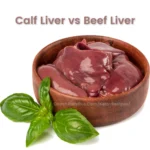Collagen & Intermittent Fasting
Does collagen break a fast? Oh, the big question everyone’s asking these days! The short answer?
Technically, yes. But the real answer? Well, that depends on your goals and how you approach your fasting game.
Whether you’re fasting to shed those stubborn pounds, boost your metabolic health, or just glow from the inside out, collagen can be your secret weapon. It’s not just about caloric intake—collagen supports your overall health, from gut health to skin elasticity. Let’s break it down together and see how this magic protein fits into your routine. You’re gonna love what you learn here!
What is Intermittent Fasting (IF)?
Intermittent fasting (IF) is a popular dietary practice that involves restricting meals to a specific period each day and fasting the rest of the time. IF has many health benefits, such as weight loss, insulin sensitivity, brain health, and immune response.
What Is Collagen and Why Should You Care?
Collagen is basically your body’s BFF. It’s the most abundant protein in your body, keeping your skin smooth, your joints happy, and your bones strong. But as we age, collagen production takes a nosedive, and that’s when the wrinkles, creaky knees, and slower recovery times show up. (Ugh, thanks, aging.)
Here’s why collagen is all the rage:
- It keeps your skin hydrated and elastic—goodbye, dryness!
- It cushions those joints so you can keep moving pain-free.
- It seals your gut lining, which is a must for better digestion.
- It supports muscle strength and helps you recover faster after workouts.
- Oh, and it keeps you fuller longer, which is great if you’re fasting for weight loss or improved body composition.
Ready to add this powerhouse to your routine? Let’s see how it plays with fasting.
Does Collagen Break a Fast?
Here’s the deal: Collagen contains calories (around 40 per scoop), so yes, it technically breaks a fast. But hold up – don’t toss your collagen just yet! It’s not as simple as it sounds.
Here’s what you need to know:
- Weight Loss and Ketosis: Collagen won’t ruin your fasting flow. Its amino acids, like glycine, can even help you stay in ketosis and keep that fat-burning fire going.
- Muscle Preservation: If you’re worried about losing muscle during fasting, collagen is your new best friend. It helps maintain lean body mass, which is key for keeping your metabolism revved.
- Autophagy (Cellular Repair): Now, if you’re fasting purely for autophagy, collagen might interrupt that process. So if that’s your main goal, save it for your eating window.
Bottom line? For most fasting goals, collagen is totally fine—and even beneficial.
How to Choose Your Fasting Goal
Before you decide when to take collagen, think about your main fasting goal. Different goals = different collagen strategies. Let’s break it down:
- Weight Loss: Want to burn fat and stay full? Collagen can help by boosting satiety and preserving muscle mass. Try taking it during your fasting window, it’s a sneaky little trick to keep hunger at bay.
- Health Benefits: Fasting can lower insulin levels, reduce inflammation, and support gut health. If your goal is overall health, take collagen during your eating window to support recovery and fill any nutrient gaps.
- Spiritual Growth: Fasting for mindfulness, gratitude, or focus? Skip the collagen during fasting. It’s about simplicity and discipline, so save it for your eating period to fuel up responsibly.
Pro Tip: Most people juggle more than one goal. If you’re aiming for weight loss and health, you can enjoy collagen in moderation during fasting. Just experiment and see what works for you.
When to Take Collagen While Fasting
Timing matters! Here’s how to make the most of your collagen:
- Daily Fasting (16:8 or similar): Add collagen to your morning black coffee for a creamy, satisfying start or take it at the beginning of your eating window.
- Alternate-Day Fasting (or 5:2): Skip collagen on full fasting days, but go for it during your eating windows to replenish nutrients.
- Pre- or Post-Workout: Collagen before or after exercise during fasting can help with muscle recovery and performance.
- Nighttime Routine: Sip collagen before bed to support skin repair and strong bones while you sleep like a baby.
Why Collagen and Fasting Are a Power Duo
Here’s why collagen is the fasting buddy you didn’t know you needed:
- Boosts Ketosis: Glycine, a key amino acid in collagen, supports ketone production for energy.
- Protects Your Liver: Collagen aids detoxification and protects the liver from oxidative stress.
- Keeps Hunger Away: It’s not magic—it’s science. Collagen helps you feel fuller longer, so those cravings don’t win.
How to Choose the Best Collagen Supplements
Don’t settle for just any collagen. Look for:
- Hydrolyzed collagen peptides for top-notch absorption.
- Marine collagen for sustainability and better bioavailability.
- No junk – avoid artificial sweeteners and unnecessary fillers. Keep it clean!
Tips for Beginners
- Start small: Go for one serving a day (about 10 grams) and see how your body responds.
- Track your progress: Use a ketone meter or glucose monitor to check how collagen impacts your fasting.
- Stay consistent: Collagen works best when you stick with it, so make it part of your daily routine.
Read more about Keto Diet And Intermittent Fasting: Your Guide To Healthy Living
FAQs
Q: Will collagen disrupt ketosis?
A: Nope! Collagen actually supports ketosis by providing amino acids like glycine.
Q: Can I mix collagen with coffee during fasting?
A: Absolutely! It’s a popular choice, and it won’t mess with your fasting goals.
Q: How much collagen should I take?
A: Most people do great with 10-15 grams daily.
Q: Is collagen okay for strict fasting?
A: If autophagy is your goal, save collagen for your eating window.
Q: What’s the best time to take collagen?
A: Anytime that fits your schedule! Morning coffee, pre-workout, or bedtime are all great options.
Q: Does collagen help with skin health during fasting?
A: Absolutely! Collagen supports skin health by improving elasticity and hydration. Even during fasting periods, supplementing with collagen in your eating window can promote glowing skin and reduce signs of aging.
Q: Does collagen affect blood glucose levels or insulin response?
A: Collagen has a negligible effect on blood glucose levels and insulin response. Its protein content supports metabolic health without causing significant insulin secretion, which is good news for those focused on fasting benefits.
Q: What is the role of collagen in a ketogenic diet?
A: Collagen is an excellent protein source for the ketogenic diet. It supports ketosis, enhances metabolic response, and pairs well with keto staples like black coffee or bone broth.
Q: Is it a good idea to take collagen at the end of your fast?
A: Yes! Taking collagen at the end of your fast can help break your fast gently while supporting muscle recovery and skin health. It’s a great way to start your eating window.
More Keto and Fasting Resources
Looking to dive deeper into keto and intermittent fasting? Check out these helpful guides:
- Keto Diet and Intermittent Fasting: Discover how keto and intermittent fasting work together to boost fat loss, enhance metabolic health, and support your overall wellness.
- Health Benefits of Keto Diet: Learn how the keto diet can improve your insulin sensitivity, reduce inflammation, and promote better energy levels for a healthy lifestyle.
- 6 Key Facts About Keto Diet: New to keto? This post breaks down the essentials so you can get started with confidence and align your diet with your goals.
- Understand Keto Diet Myths and Facts: Don’t let misinformation hold you back. Uncover the truth about keto and intermittent fasting to make smarter decisions.
- Foods to Avoid on Keto Diet: Avoid common pitfalls by learning which foods to skip while staying on track with your keto and fasting plan.
These posts will help you build a stronger foundation for success and guide you through your keto and fasting journey., such as in your morning coffee and before bed. This will provide an instant boost of energy and recovery. However, you should avoid taking collagen in the middle of your fasting window, as it may interfere with your fasting state and ketosis.












